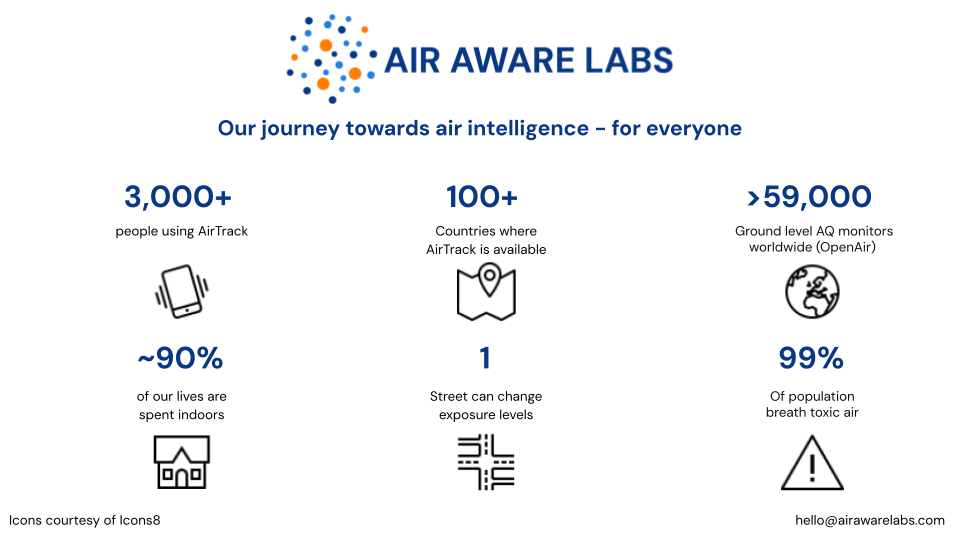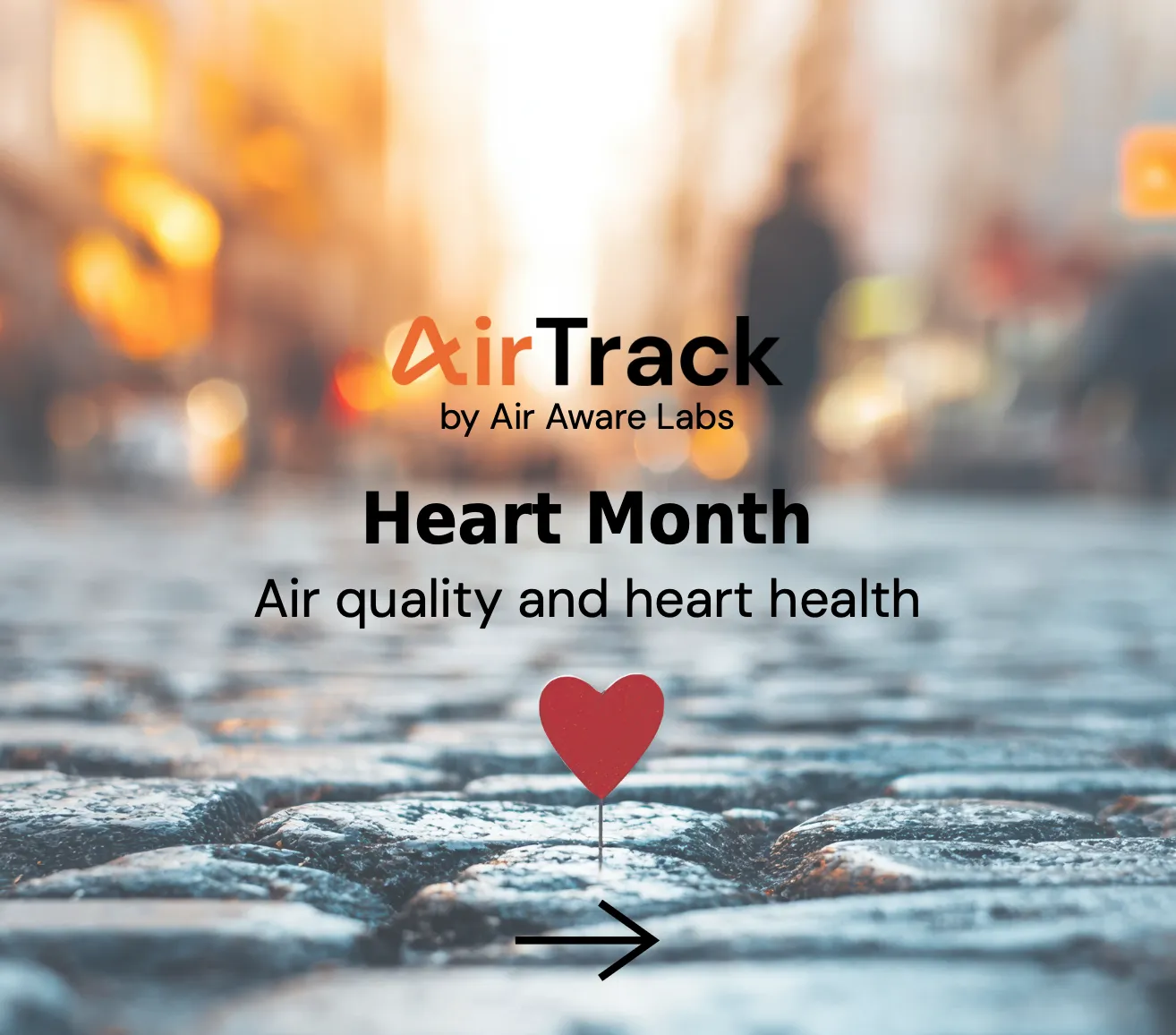9 out of 10 parents

When we started user research on air pollution and its impacts on different groups of people, one piece of feedback was near universal: "I didn't worry about pollution that much, then I had children and now I do".
So we decided to delve into this deeper, alongside two other groups (people exercising outdoors, and people with long-term conditions that are caused or exacerbated by air pollution). We'll write more on those other groups soon.
In January we put out a survey and got a great response - 60 people. Similar demographics to people across the country - 82% from urban areas and 82% with 1-2 children. The only difference was 18% reported having at least one child with asthma, whereas the rate across the country is 9%.
Our key findings are in the infographic above. We were taken by the contrast between 87% being at least somewhat concerned and over 50% feeling uninformed about local air quality. What people self reported doing to reduce exposure was interesting: as well as those mentioned above, common responses were avoiding idling cars, increasing indoor ventilation or purification, not going outside when pollution is high and choosing outings outside the city.
We followed up with in depth interviews with some of the survey respondents. We delved into their decision-making around school runs, other health-related investments and where air pollution sits within their concerns for their children.
We are on a mission to provide personalised health insights from air pollution data. Air pollution is the biggest environmental threat to our health, associated with everything from respiratory disease, heart problems, mental health and impaired childhood development.


.svg)











.webp)